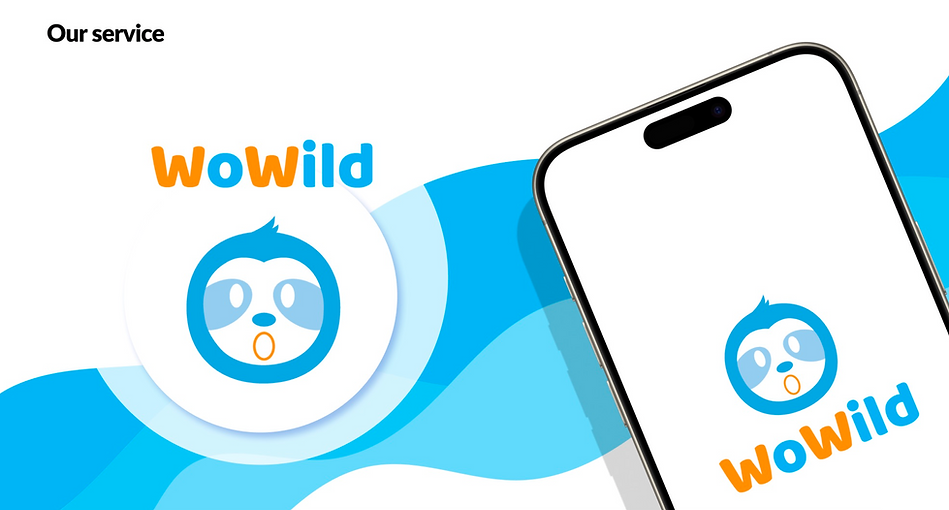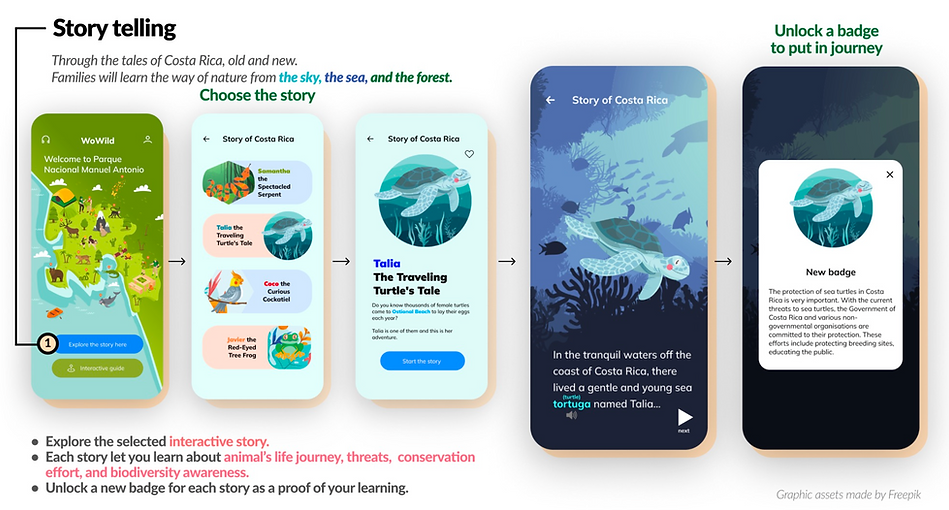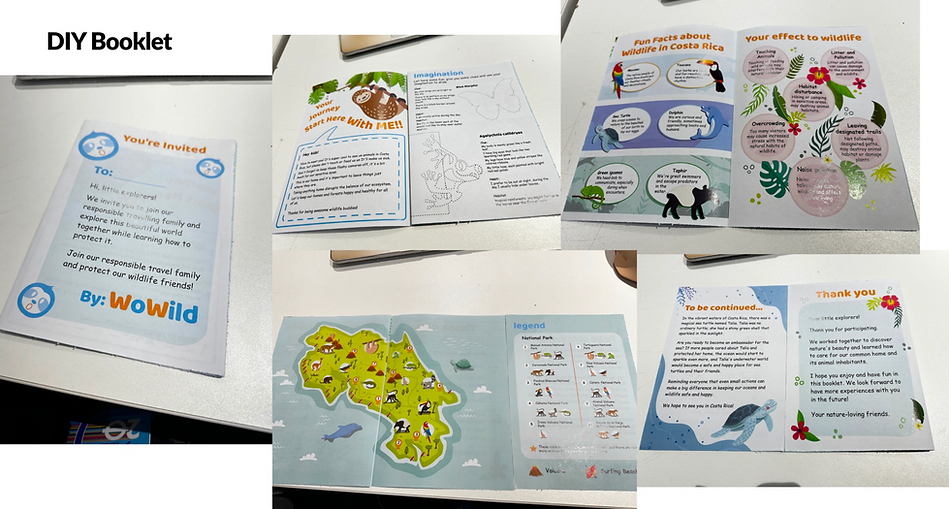Wowild
background and goal
‘Wildlife Family is a service design project centred on ecotourism in Costa Rica that aims to help families understand ’responsible travel" through interactive education and immersive experiences to reduce the negative impacts of tourism on wildlife. The project focuses on families with children ages 5-12. Focusing on families with children between the ages of 5-12, the programme uses storytelling, AR technology and a badge incentive system to integrate conservation awareness into the entire travel process, while promoting parent-child interaction and local culture.
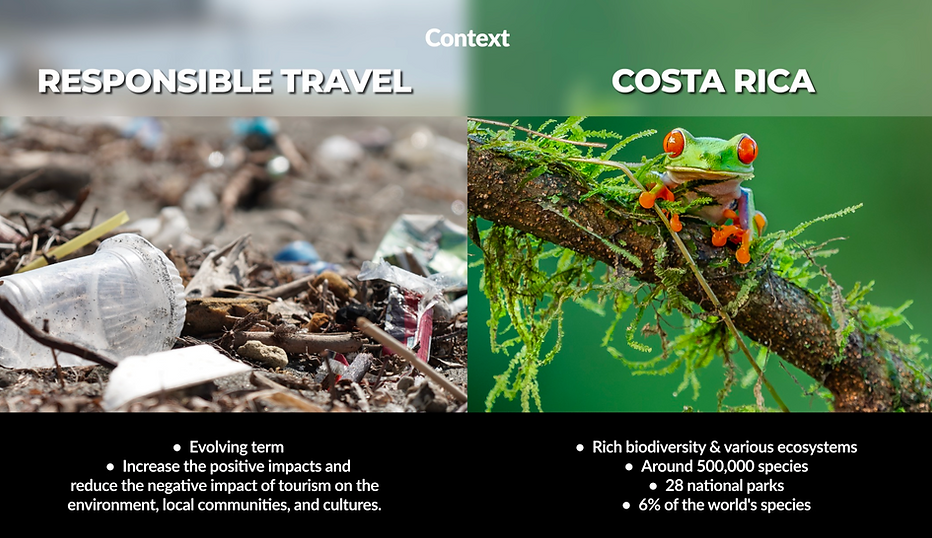
Key solutions
Storytelling Learning Platform (Wowild):
Interactive storytelling: Collaborate with local artists to develop stories based on real-life ecological conservation (e.g. sea turtle conservation), and convey conservation knowledge through illustrations and AR animations.
AR animal interaction: Set up AR virtual animals in scenic spots to guide families to complete tasks (e.g. simulated release of baby sea turtles), unlock badges and generate travel souvenir albums.
Multi-dimensional user journey:
Before the trip: Pre-learning through DIY handmade bag and e-storybook.
During the trip: Combine map navigation and AR tasks to dynamically deliver conservation knowledge.
After the trip: Continue the impact through the commemorative photo album and donation function to support local conservation projects.
Sustainable business model: Integrate with national parks, NGOs and tourism organisations (e.g. Intrepid) to generate revenue through advertising, travel packages and government funding.

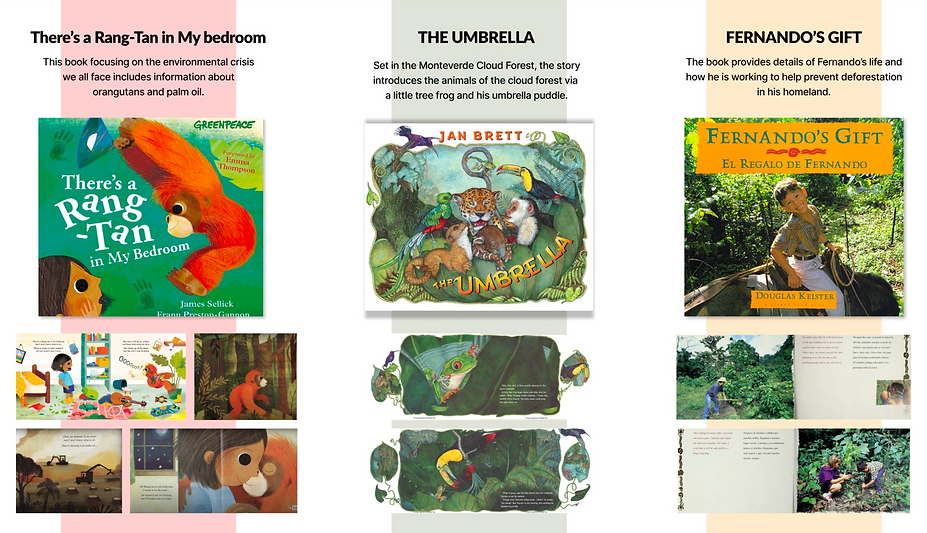
design process
In-depth user research: Through family interviews (10 groups of parents), the company explored needs, defined ‘passive learning’ and ‘ambiguous information’ as the core pain points, and created user profiles (e.g., families of nature enthusiasts who attach importance to parent-child education).
Interdisciplinary Collaboration: Developed cultural stories with local artists and AR interactive content with animal protection experts to ensure scientific and cultural authenticity.
Prototype testing and iteration: Optimise the AR interface interaction logic (e.g. add facility labels), enhance the visibility of the donation function, and introduce ‘animal spokespersons’ to enhance the memorability based on feedback.
Business model validation: We identified partners (e.g. Costa Rica's National Protected Areas System) and revenue models through the business canvas, balancing social value and commercial viability.


impact
Behavioural change: Tests showed that 75% of families actively reflected on their own behaviour through stories and AR tasks to reduce feeding or disturbing wildlife.
Business value: Attracted cooperation from travel agencies such as Intrepid to promote customised eco-travel packages.
Cultural dissemination: Local stories are incorporated into school textbooks, enhancing the community's sense of cultural identity.
